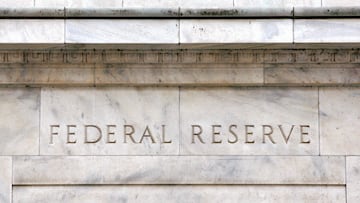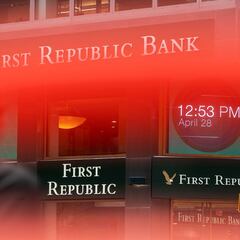Will the Fed raise interest rates again in May 2023? This is what the experts say
Federal Reserve policymakers have been aggressively raising rates over the past year. However, recent turmoil in the banking sector has given them pause.

The Federal Open Market Committee (FOMC) are meeting this week for the first time since March, where policymakers will decide on the next move to bring inflation back to the US central bank’s target of two percent while still attempting to produce a “soft landing.” The Federal Reserve has been aggressively raising the cost of borrowing over the past year implementing nine successive rate hikes, taking them from 0.25 percent to 5 percent.
Prior to their last meeting, strong economic data led to concerns that a half percent increase would be implemented. However, turmoil in the US banking sector, caused in part by the rapidly rising rates, gave policymakers pause and only a quarter percentage hike was approved. The general view among experts is that the Fed will raise rates again on 3 May another 25 basis points, which is also in line with market expectations.
Will the Fed raise interest rates again in May 2023? This is what the experts say
Two weeks before the FOMC was due to meet, Reuters released a survey of 105 economists’ forecasts on Fed rate policy and their predictions for the US economy. Nearly 90 percent of them predicted that rates would go from 5 percent to 5.25 percent. The vast majority, almost six out of ten, see rates staying at that level for the rest of the year. However, just over a quarter of respondents predict that the US central bank would cut rates before the end of the year.
US stocks ended little changed as investors took in the weekend auction of First Republic Bank and braced for this week's expected interest rate hike from the Federal Reserve https://t.co/nwF0PQsxJy pic.twitter.com/IclYqFmwLt
— Reuters (@Reuters) May 2, 2023
“On the data front, despite the slowdown in inflation in March, there is still a lot more work to be done to get back to the 2% target,” chief US economist at BofA Securities Michael Gapen said. “We maintain the first rate cut in March 2024. Should the stresses in the financial system be reduced in short order, we cannot rule out that stronger macro data will lead the Fed to put in additional hikes beyond May.”
Most experts see a recession in 2023
Related stories
The biggest concern is that the US central bank’s monetary tightening may slow the economy too much while not bringing inflation down sufficiently. Reuters asked 47 respondents an additional question about the prospect of a recession in 2023. Thirty-seven felt that there would be but 31 of them predict that it will be short and shallow.
This could present a problem for the Fed. Limiting its ability to raise rates further if needed since inflation isn’t forecast to come down to the target level until 2025 at the soonest. A majority of respondents expressed the worry that inflation would be higher this year than is currently expected.


